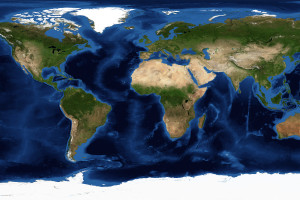Putin’s New Friendship Offensive Won’t Work Abroad or at Home, Shevtsova Says

(Paul Goble – Window on Eurasia – Staunton, June 19, 2016)
Vladimir Putin’s “main message” at the St. Petersburg economics conference that Moscow “again wants to be friends” with the West will not work either in the West, which has been transformed by the Kremlin leader’s aggressiveness, or at home among Russians because he depends on continued anti-Western mobilization, Liliya Shevtsova says.
Putin certainly wants to escape the current sanctions regime and the international isolation he has driven Russia into, the Brookings analyst says; but several problems immediately arise: how can he to present a defeat as a victory or win back those he has alienated? (http://echo.msk.ru/blog/shevtsova/1786324-echo/).
What may be “a still more serious problem for the Kremlin,” Shevtsova says, “is the impossibility of turning away from anti-Westernism as a mobilization mechanism and a legitimation of the powers that be given that he doesn’t have any other” ideological bases for his approach.
“To make friends with the West and at the same time fight with it” is no easy thing to present to the Russian population and elite given that “for the political class and for part of the population [hostility to the West] has become a way of life,” as was shown by the behavior of Russian soccer louts in Marseilles.
And the West may not respond the way Putin hopes and expects either. On the one hand, those European leaders at St. Petersburg made clear that the West will lift sanctions only if Moscow lives up to its obligations under the Minsk accords. And on the other, even if that happens, Western attitudes toward Russia have changed because of Putin’s actions.
“The irony” of this situation, the Russian analyst says, “is that the Kremlin has really been able to change the West, to force it to give up on an idea which defined its attitude toward Russia for the last 25 years – a striving to its integration” in the West. Today, the West looks at Russia with suspicion and distrust and seeks to contain it.
According to Shevtsova, “the political forces which lobby the interests of Moscow in Western society are marginal.” Western public opinion toward Russia has become sharply negative. In Germany today, “only 14 percent” of the population “considers Russia a country which can be trusted; and “58 percent say sanctions must be extended.”
“The scandals with the Russian football fans only strengthen in Western consciousness the image of the Russia which has been caricatured by Charlie Hebdo: a drunken Neanderthal against whom one must tightly lock one’s doors.” That means Western public opinion won’t allow Western elites to return to Moscow’s “embrace.”
That is the world “which Russia has created around itself,” Shevtsova concludes, and so “an attempt to return to the old sandbox won’t succeed.” And it is thus unclear how a petro state like Russia can be a power “when the West ceases to play” according to the rules that Putin expects.
[Article also appeared at windowoneurasia2.blogspot.com/2016/06/putins-new-friendship-offensive-wont.html]
